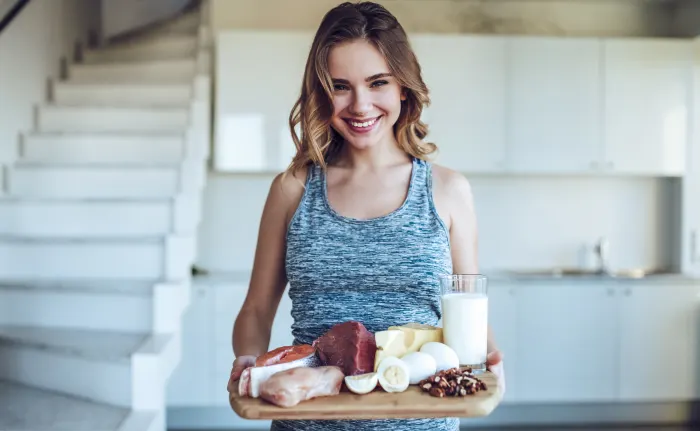The Best Type of Protein to Eat Every Day and How Much You Actually Need
Protein has become a hot topic, with social media showcasing protein-packed meals and fitness fans blending protein shakes. It’s no surprise—protein plays a crucial role in keeping us healthy.
As Parade highlights, experts agree it’s essential for our body’s cells, skin, muscles, and even our hair and nails.
What Is Protein?
Registered dietitian Dawn Menning explains in Parade that protein is made of amino acids, the building blocks of our body.
Out of the 20 amino acids, nine are “essential,” meaning we need to get them from food because our bodies can’t make them.
Foods like meat, eggs, and fish contain “complete proteins,” which have all nine essential amino acids. On the other hand, plant-based foods like nuts and beans are “incomplete” but still valuable.
Where to Get Protein
There are many protein sources, as Menning tells Parade. These include:
- Meat (beef, lamb, pork)
- Poultry (chicken, turkey)
- Fish (salmon, tuna)
- Eggs
- Dairy (milk, yogurt, cheese)
- Plant-based options like beans, nuts, and soy
Dietitian Destini Moody adds that animal proteins tend to provide more protein in smaller portions and include key nutrients like B12 and iron. However, plant-based eaters can mix complementary proteins—like beans and rice—to get all the amino acids they need.
How Much Protein Do You Need?
Parade explains that the average person should consume 0.8 grams of protein per kilogram of body weight daily. For those looking to lose weight or build muscle, the amount is usually higher. Brittany Werner suggests spreading protein across meals and snacks for better absorption and energy.
Ideas for Adding Protein
- Meals: A salad with greens, grilled salmon, black beans, and lentils is a great choice.
- Snacks: Greek yogurt with nuts, hard-boiled eggs, or a protein smoothie can keep you full.
Why Variety Matters
Experts emphasize the importance of variety. Parade quotes Menning, who says eating different protein sources ensures you get a balance of nutrients and avoids diet burnout. Moody agrees but suggests including at least one serving of animal protein daily for those who aren’t vegan.
Signs You Need More Protein
Parade warns that low protein intake can lead to muscle weakness, fatigue, slow healing, or even changes in your hair and skin. Tracking what you eat can help identify gaps in your diet.
In conclusion, protein isn’t just about building muscle—it’s a vital nutrient for overall health.
As Parade highlights through expert advice, mixing up your protein sources and balancing your intake throughout the day can help you feel your best.
Credit : Parade

